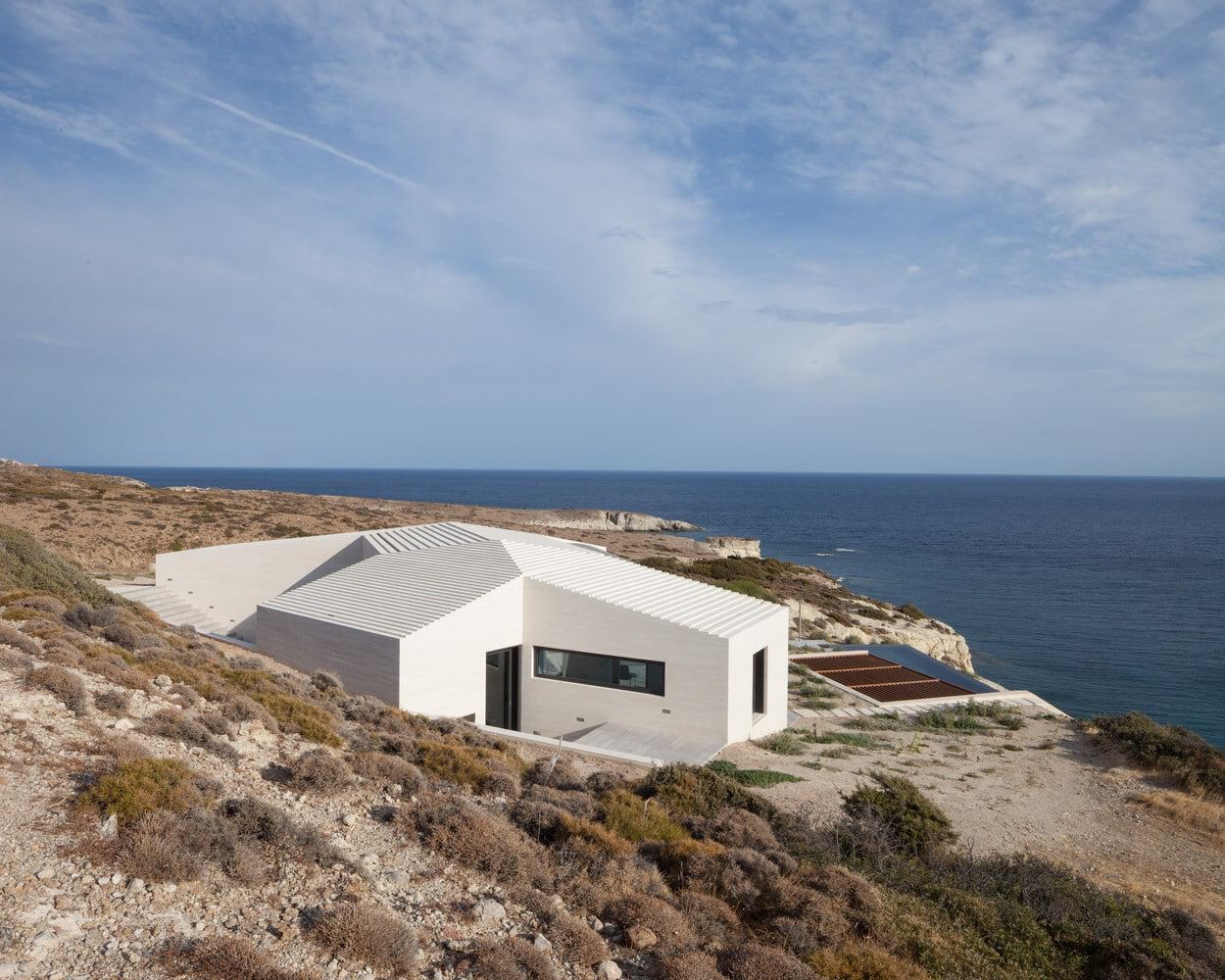Project: Voronoi’s Corrals House
Architects: decaARCHITECTURE
Location: Island of Milos, Greece
Area: 2,589 sf
Photographs by: Stale Eriksen
Located on the southern part of the Milos island in Greece, the Voronoi’s Corrals project is an incredibly ambitious and isolated seaside dwelling that integrates within the spectacular surrounding landscape. Designed by decaARCHITECTURE, a studio we’re familiar with through their Aloni House project on the Greek island of Antiparos, so that kind of landscape integration is to be expected.


The site of Voronoi’s Corrals (VNC HOUSE) is a large parcel of land (60,000sqm) on the Southern coast of the island of Milos, Greece, protected by the European treaty Natura 2000 which allowed us to build only 250sqm. Therefore, we scouted the site in search of micro-environments and identified the most potent locations for a variety of uses, taking into account the sun trajectories, the prevailing winds, the views, the sound of the sea, the geological morphology and the vernacular flora. These locations are the points that we chose to stimulate in order to develop our proposition, forming a non – Cartesian grid. The grid is based on the ideas of the mathematician Georgy Voronoi. Our Voronoi grid defined the geometric structure of our interventions, from the planting schedule, to the space layout, to the even floor pattern.
The location of the Main House (which we also call the Immersion Corral), coincides with the collision of two geological bodies. Milos island is of volcanic origin and its south coast is characterized by its jagged cliffs made of tuff stone. The form and material choice of the main house relates to these larger geological formations prevalent on the site. The entire shell is made by limestone blocks of a constant 4cm thickness and is shaped by the stacking, coursing and stepping of these blocks. The stepping of the roof is a result of negotiating the different inclinations of the roof using the long limestone blocks. The building makes no allusion to a vernacular past but to the primitive forms which exist on site. The volume’s extremities slope in different gradients following the inclination of the rocky outcrops and the direction of the views, thus diminishing the mass of the building. The limestone shell provides high thermal protection and, like the cliffs, ages naturally over long periods of time. This shell also conceals the mechanical elements used for drainage and ventilation.
An orchard of 550 olive trees was planted along with grape vines, vegetables and aromatic herbs. The vegetation is protected from wild goats with a winding stone wall of over 700 meters in length. As the topography slopes downwards towards the sea, the stone wall increases in height to reveal the façade of a guest house which is otherwise hidden from view by the olive field above it. The field is only interrupted by an incision in the ground, creating a small public space that can be transformed by sliding panels. The glass panels disappear into the walls to blur the distinction between indoor and outdoor life. The guest house is just an inhabited retaining wall in the landscape and in that sense is purely part of it.
During our research we found that a third of the plot has been plowed and cultivated at least for over 60 years. Besides the extensive planting we did, we also engaged with the idea of the rural productivity of the land by employing mechanical strategies that give the project as much infrastructural independence to support its leisure activities without burdening the environment excessively.
This website uses cookies.